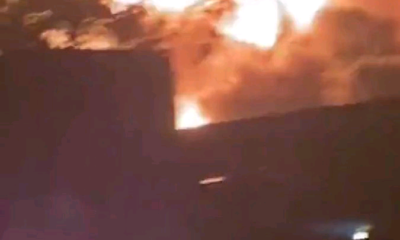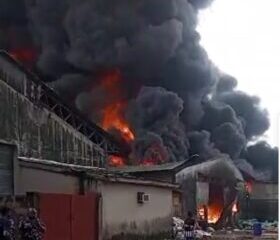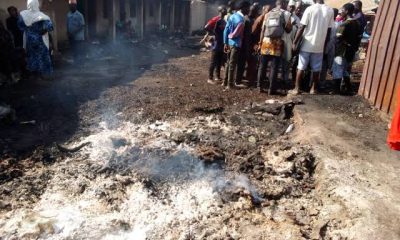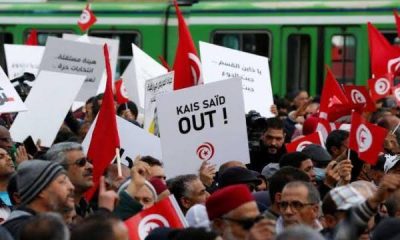Foreign
Deadly fires rage along Algeria coast, spread to Tunisia

Algeria was battling to contain devastating forest fires along its Mediterranean coast on Tuesday, in an inferno which has killed at least 34 people, authorities said, adding they had managed to control about four-fifths of the blaze.
Fanned by strong winds, fires had also spread to neighbouring Tunisia, forcing the closure of two border crossings.
A relentless heatwave has caused havoc across the planet this month, with temperatures breaking records in China, the United States, southern Europe, and North Africa, leaving a trail of devastation in its wake.
Greece has been battling forest fires for the past week, triggering a mass evacuation of thousands of tourists from its most popular holiday resorts.
The fires broke out in several provinces in Algeria on Monday, ripping through forests, olive groves, and low-lying shrubland. More than 8,000 firefighters were deployed to bring the flames under control.
Algerian civil protection services said 15 fires were raging across eight regions on Tuesday at Skikda, Jijel, Bouira, Bejaia, Tebessa, Medea, Setif, and El Tarf.
Ten of the 34 victims reported on Monday were soldiers. Authorities said they had evacuated some 1,500 people from their homes.
Temperatures of 49 degrees Celsius (120 Fahrenheit) were recorded in some cities in Tunisia this week.
Civil protection units, backed by forestry workers and the air force were working to put out fires in several areas of Tabarka in the northwest, bordering Algeria.
Moez Tria, spokesman for Tunisian civil protection, said priority was given to protecting residential communities in the region and preventing the blaze from reaching an airport in the area.
Fires also broke out in other regions of the country including Bizerte, Beja, and Siliana regions.
Foreign
3 teens arrested in Germany for allegedly plotting terror attack
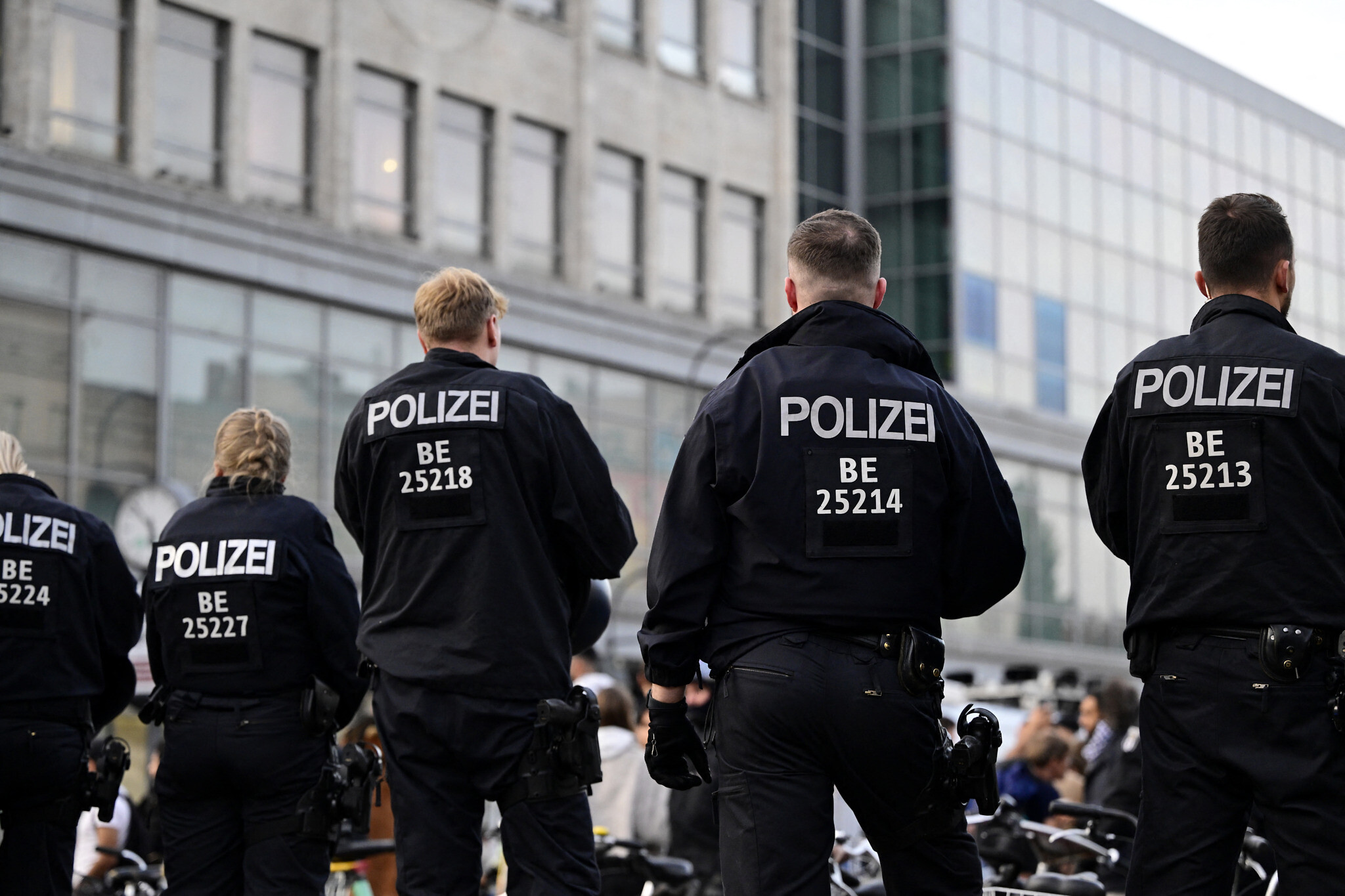
German authorities have arrested three teenagers aged 15 and 16 on suspicion of plotting a deadly Islamist terrorist attack in the western German state of North Rhine-Westphalia, prosecutors said on Friday.
The state’s Central Office for the Prosecution of Terrorism (ZenTer NRW) sought an arrest warrant for the teenagers over the Easter holiday.
They were suspected of plotting a terrorist attack in accordance with the aims and ideology of (extremist militia organisation) Islamic State.
The detained suspects are a 15-year-old girl from Dusseldorf, a 16-year-old girl from the Märkischer Kreis district and a 15-year-old boy from the Soest district, located about 100 kilometres to the east of Dusseldorf.
A fourth suspect has reportedly been identified in the south-western German state of Baden-Württemberg, and the local court there has issued an arrest warrant.
According to the investigators, the teenagers are accused of having agreed to commit murder and manslaughter.
This is in conjunction with the preparation of a serious act of violence endangering the state.
The presumption of innocence applied in all stages of the proceedings.
Security sources told newsmen that the young people had formed a chat group, but had not drawn up a concrete attack plan for a particular time and place.
However, sources said the cities of Dortmund, Dusseldorf and Cologne were discussed as targets, and attacks with knives and Molotov cocktails on people in churches or police officers in police stations had been considered.
The sources said authorities had also conducted searches as part of the investigation.
A machete and a dagger were seized in Dusseldorf, but no evidence of the construction of incendiary devices was discovered.
Sources said the father of the Dusseldorf suspect had already attracted attention from authorities in the past because he had allegedly collected donations for the Islamic State.
The investigators declined to reveal how the suspected terrorists were tracked down, but said that foreign intelligence agencies “did not play a role.”
Foreign
Putin Registers As Candidate For Russia’s Next Presidential Election

Russia on Monday officially recognised Vladimir Putin as a candidate for the presidential elections in March, a vote that he is all but certain to win.
The 71-year-old has led Russia since the turn of the century, winning four presidential ballots and briefly serving as prime minister in a system where opposition has become virtually non-existent.
The Central Election Commission said it had registered Putin, who nominated himself, as well as right-wing firebrand and Putin-loyalist Leonid Slutsky as candidates for the vote.
The election will be held over a three-day period from March 15 to 17, a move that Kremlin critics have argued makes guaranteeing transparency more difficult.
Following a controversial constitutional reform in 2020, Putin could stay in power until at least 2036.
Rights groups say that previous elections have been marred by irregularities and that independent observers are likely to be barred from monitoring the vote.
While Putin is not expected to face any real competition, liberal challenger Boris Nadezhdin has passed the threshold of signatures to be registered as a candidate.
However, it is still unclear if he will be allowed to run, and the Kremlin has said it does not consider him to be a serious rival.

